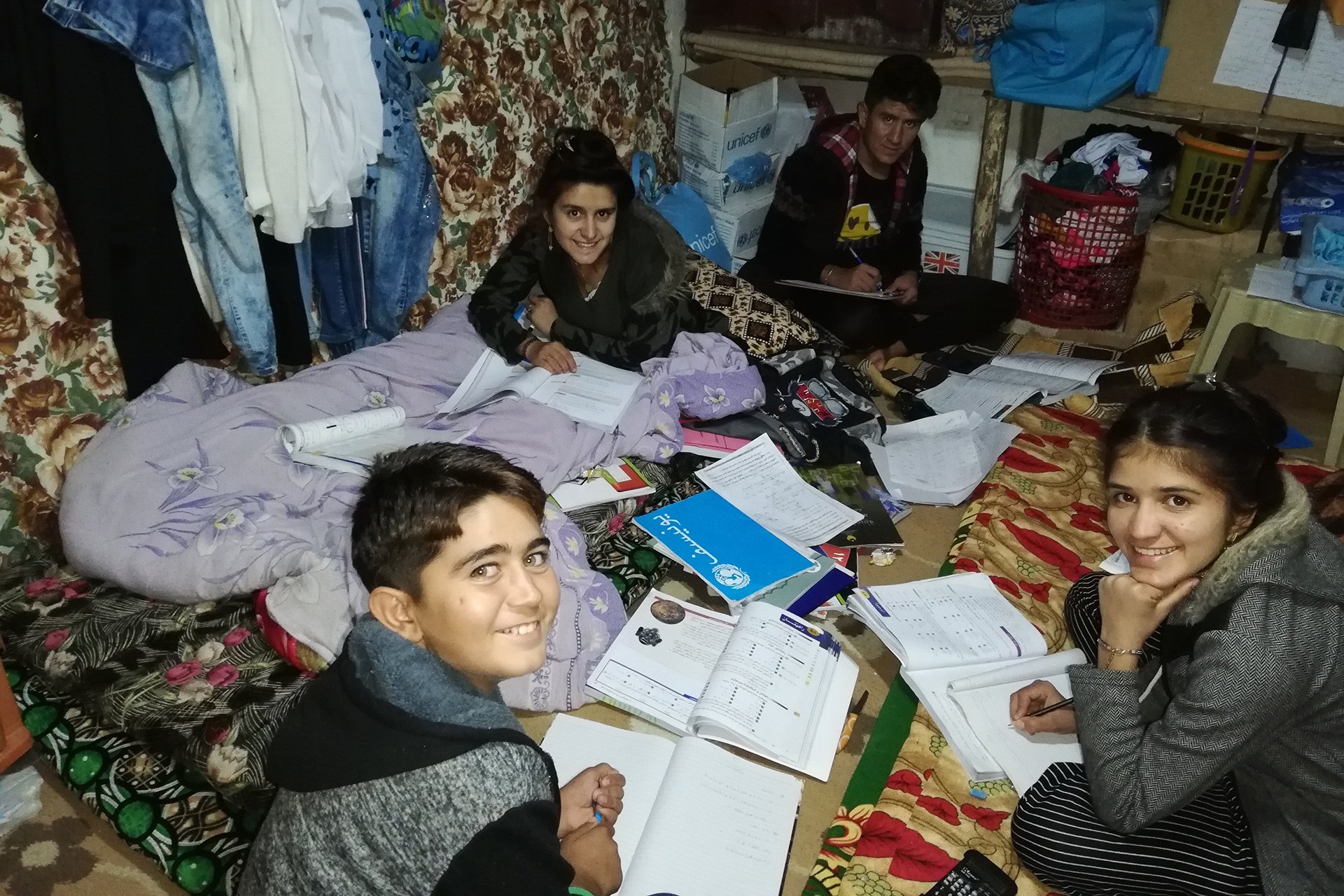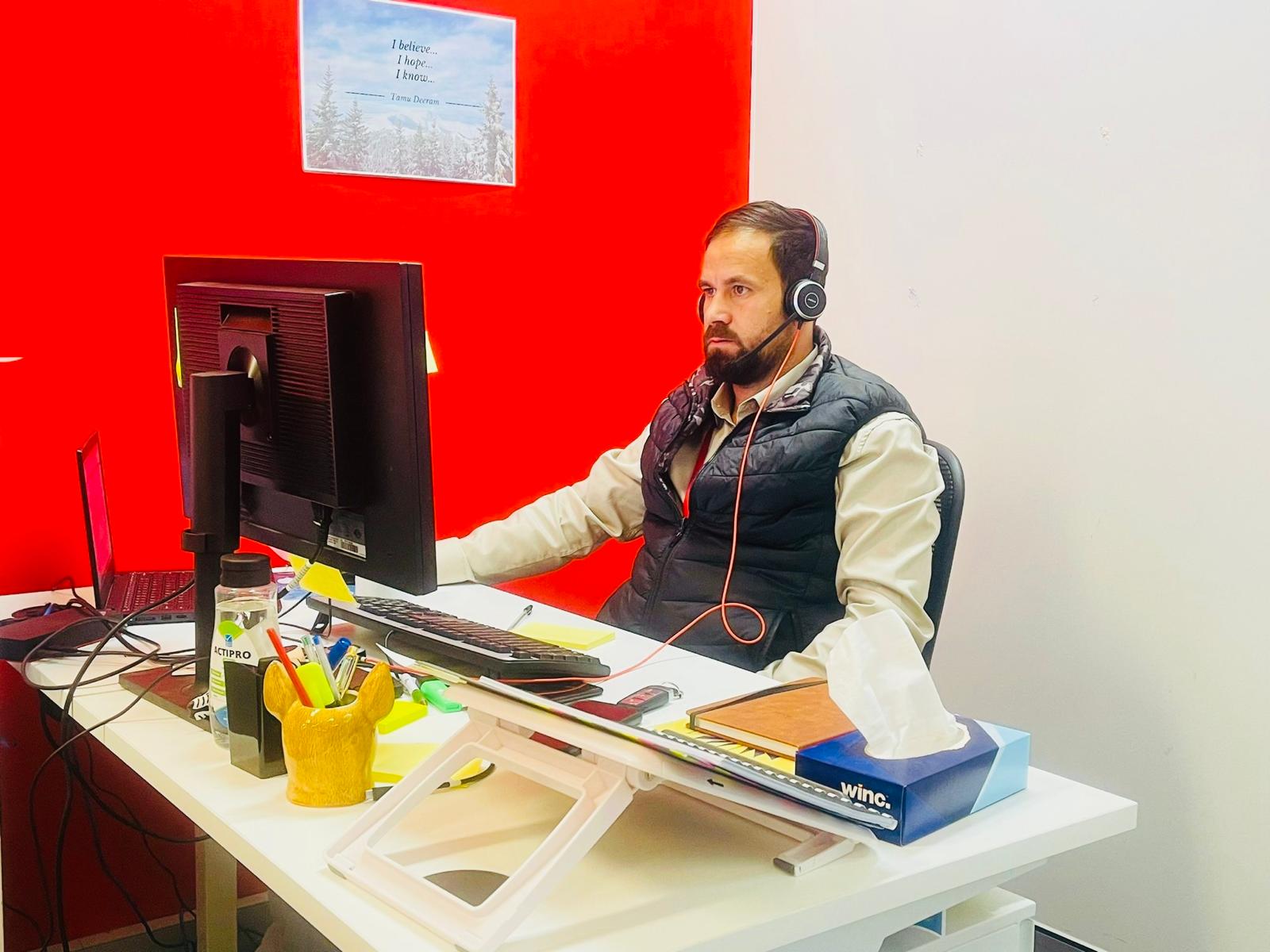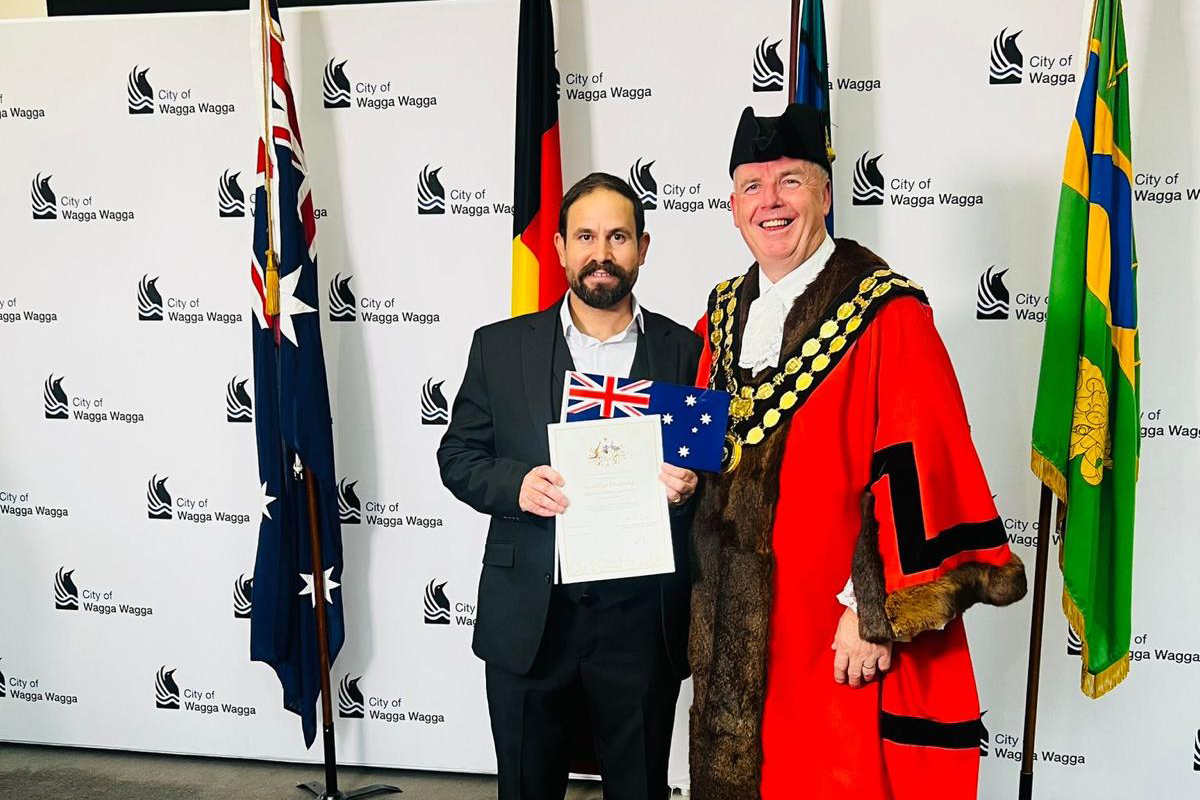

Shahab remembers the day he arrived in Australia like it was yesterday. On 23 April 2019, five years after the Yazidi Genocide forced his family to flee their village for a refugee camp in the Kurdistan region of Northern Iraq, they landed in Sydney, ready to start their new lives.
“I felt a mix of happiness, relief, and deep gratitude. It was an emotional moment – after everything we had been through, arriving here felt like a new beginning and a dream come true,” reflects Shahab.
“My family, all eight people, we lived in one tent which was three times four metres – we were sleeping and living in that tent for five years. So, it was a new start for us. I was excited to finally be in a safe country where I could build a better future for my family and contribute to the community. It was truly one of the best and most unforgettable moments of my life.”

Shahab and his family arrived in Australia through the government-supported Humanitarian Settlement Program at Australian Red Cross. The program provides refugees with the assistance they need to set up life in Australia and is designed to support people for up to 24 months after they arrive. From helping families move into their new homes, where warm, culturally appropriate meals are waiting, to showing them how to use public transport and enrol in education programs, we give people the footing they need to feel confident participating in everyday life.
In the year leading up to July 2025, Australian Red Cross helped 4,293 people from 49 countries to resettle in Australia. Each family that arrives through the Humanitarian Settlement Program is assigned a dedicated team of people to help welcome them and make them feel like they belong, from case workers to bilingual support workers, housing officers and community navigators.
The welcome process begins the moment families step off the plane. After being greeted by a team of Australian Red Cross people in Sydney, Shahab and his family were flown to the regional New South Wales centre of Wagga Wagga, where they continue to live today.
“There was a team of Red Cross people waiting for us,” says Shahab. “They supported us, they visited us, and they took us around.” He recalls being taken to a community soccer game the weekend he arrived, where he was able to meet other people from Wagga’s Yazidi community. “It was great. When we saw people smiling all the time – they don't know you – but when you see them... they’re smiling and saying ‘Hi’. And those things make you feel like you are in a new home.
“It was a great feeling because things like that make you settle in quicker, and you don't feel that you are in some way a foreigner.”
There is another memory from Shahab’s first days in Australia he will never forget. While on the way to his family’s new home in Wagga, Shahab was talking to his case worker about his physics education, as well as his experience working with humanitarian organisations in the refugee camp. “He told me, ‘After six months, I think you’re going to be in my position’,” recalls Shahab with a smile.
Sure enough, less than a year after arriving in Australia as part of the Humanitarian Settlement Program, Shahab was ready to transition out of the program. He was then employed by Australian Red Cross as a bilingual support worker.
Alongside his ability to speak English, Arabic and Kurdish Kurmanji, his prior work experience and passion for looking after his community meant he was in a unique position to help support members of Wagga’s growing Yazidi population – since the end of 2016, approximately 1300 Yazidi refugees have resettled in the area.
“A lot of our staff and volunteers are from the communities that we support, or they are people who have left the program and then have returned to help support their communities,” says Australian Red Cross Humanitarian Settlement Program Manager Kirri-Lee Larsen. “We really empower community to support themselves.”
“If you are from the community, you know more, and you know what's the best,” says Shahab of the power of being part of the community he works to support. “Many of us came here because of the war, the genocide, so we know how much our community is holding the trauma, because we’ve all been in that situation.”
After working as a bilingual support worker for four years – a role that differs from an interpreter and is crucial to the settlement process in that bilingual support workers can explain and assist in addition to simply interpreting – Shahab moved into the new position of community navigator.
“It’s an important role, because I'm always trying to find the best things to engage people to settle in quicker,” he says. “I will go do all the networking in Wagga, and I’m also watching a lot of social media groups. Whatever events I see, I think, ‘Oh that's going to be good for the clients’.”
Shahab shares the example of showing newly arrived community members the local Yazidi cake shop, so that when a birthday comes up, they know they can order the cake they want easily, in their own language.

The way Shahab approaches his role isn’t only shaped by his place in the Yazidi community (he also juggles studying a graduate diploma in mathematics with running weekly tech workshops for community members at the local library). When he’s helping those who have just arrived, he’s also thinking about the things he and his family found the most challenging during their first weeks and months.
“Transport was one of the biggest challenges... Everything is different than we have back home,” he says. “Australian Red Cross was helping us at the beginning, but the good thing is we were learning through that. If they helped us the first time, the second time we are trying to do it by ourselves.”
When helping members of his community to feel at home and connected to opportunities in Australia, Shahab feels an immense sense of pride and belonging. Reflecting on the full-circle nature of his journey, he says: “Australian Red Cross helped my family, so I want to help others.”

Shahab has achieved a great deal since arriving in Australia on that day in 2019. He is now a proud Australian citizen, and in 2021, he married his wife, Jani, whom he met through the Yazidi community in Wagga. The two share a beautiful son, Evan, with another baby on the way.
"You come here, start from the beginning and suddenly, all of your dreams come true,” he reflects. Throughout it all, though, Shahab’s dedication to the Wagga community – the community that first welcomed him, and he now welcomes others into – has remained a constant.
“You know when someone is starting primary school, the teacher is holding their hand [and] taking them around until they’re ready? I think that at Red Cross, we are like a primary school. We teach them, we show them. Then when they go to high school – which means another program or organisation – they don't need too much, because they are aware. They have been with us until they learn, until they settle."
“We are all human, so we have to help each other, stand with each other, collaborate with one another to live life," says Shahab. “It’s very important to help your community... It’s a great thing to do.”
Red Cross pays our respects to the Aboriginal and Torres Strait Islander custodians of the country where we work, and to Elders, past, present and emerging.
Learn about our Reconciliation Action Plan and how we can all make reconciliation real.
This website may contain the images, voices or names of people who have passed away.


© Australian Red Cross 2026. ABN 50 169 561 394
